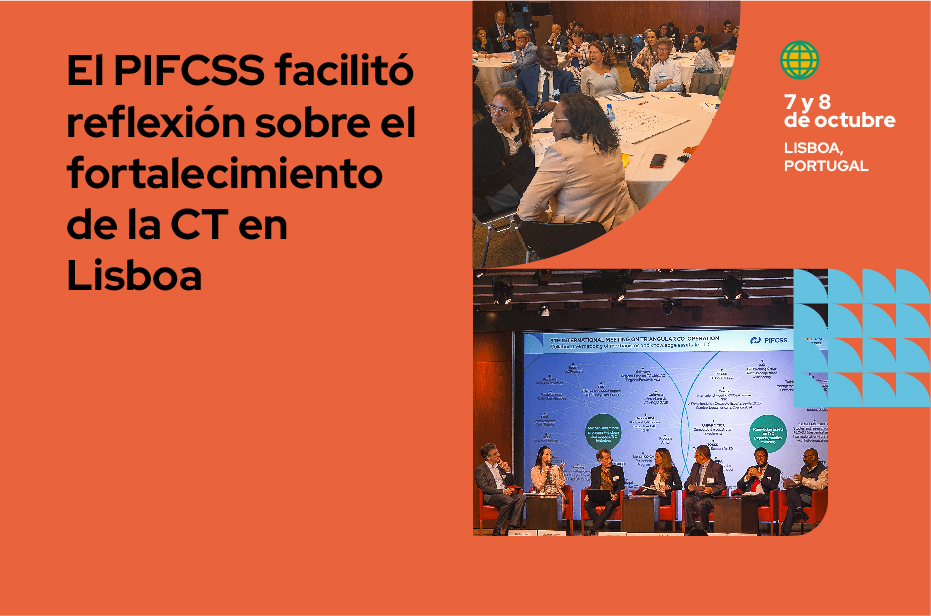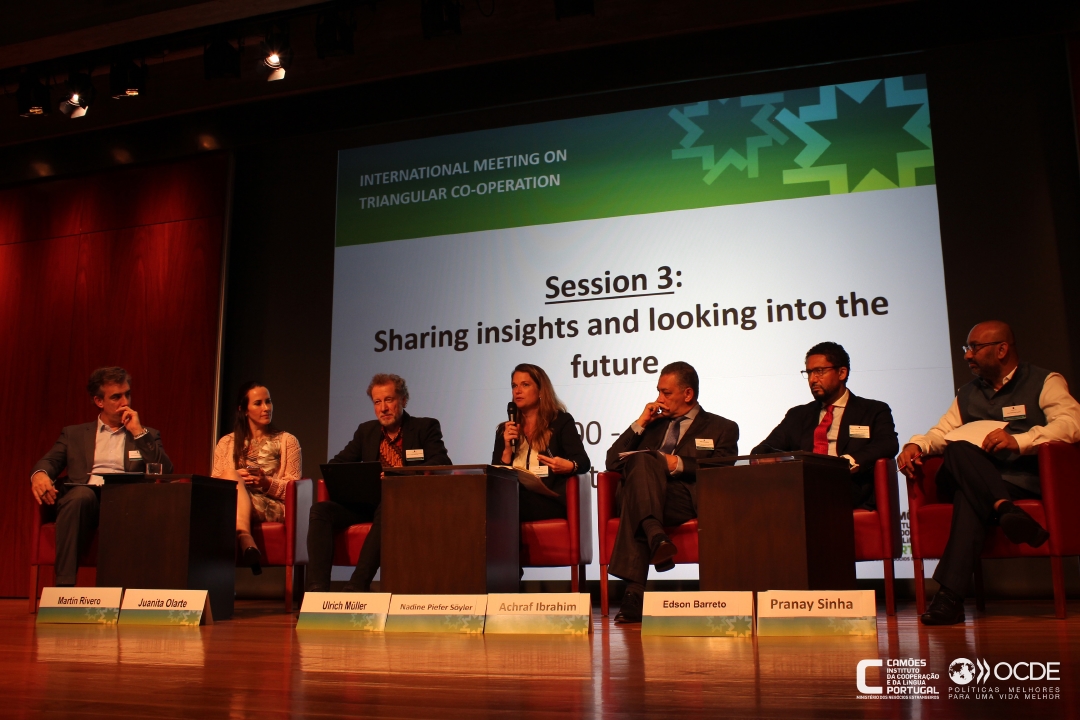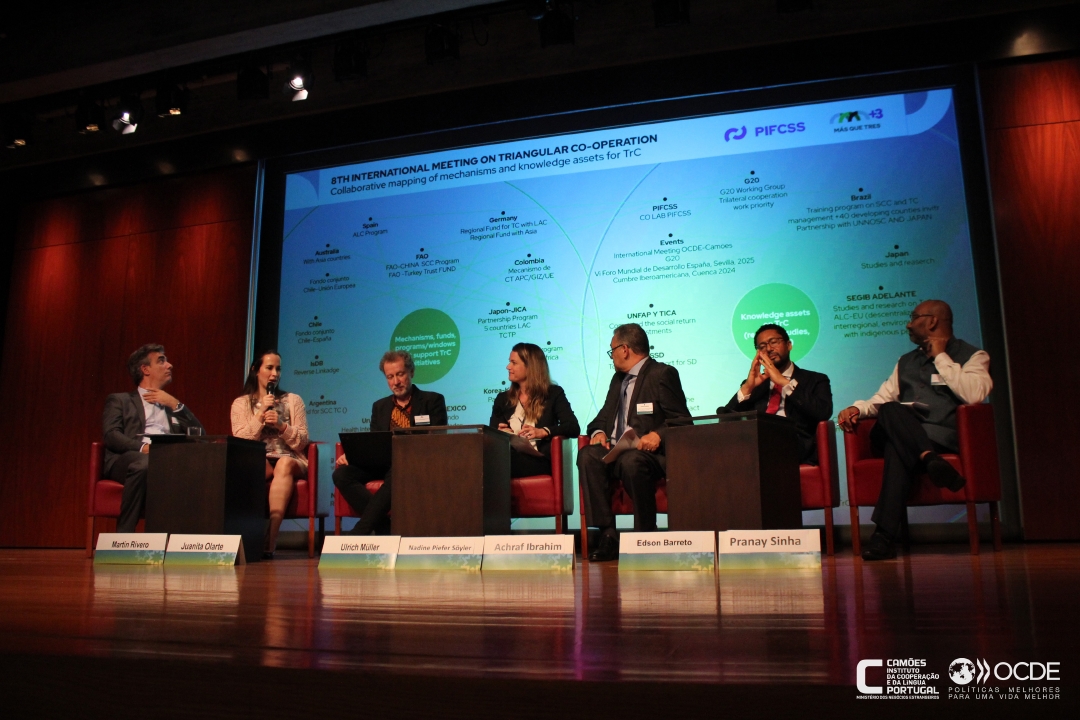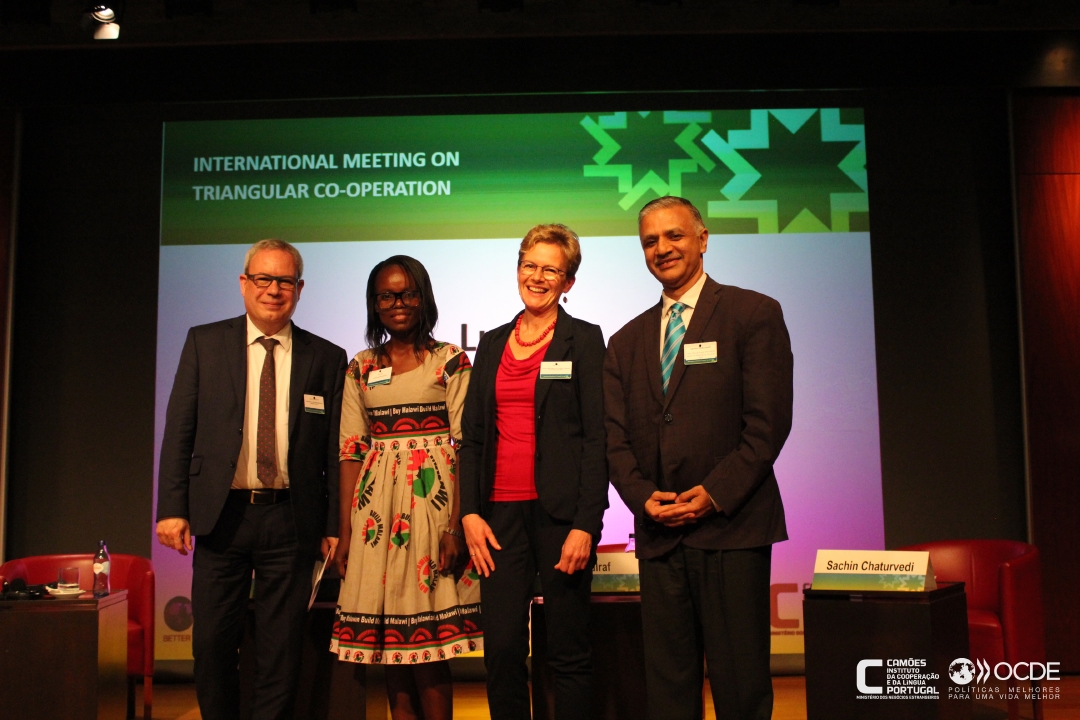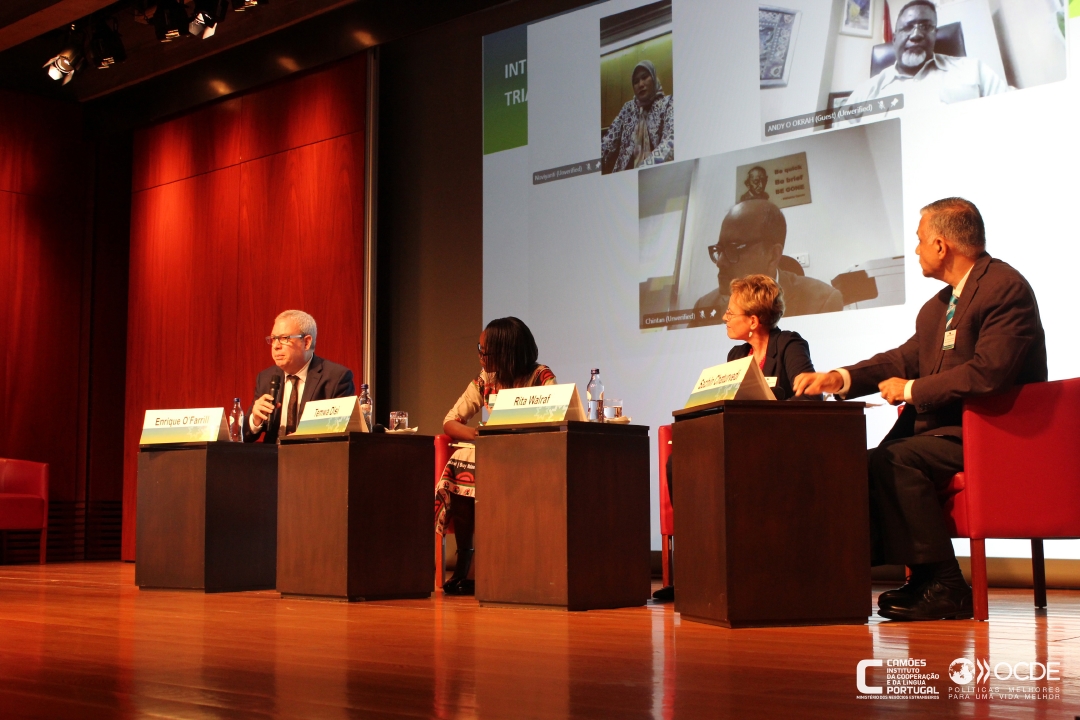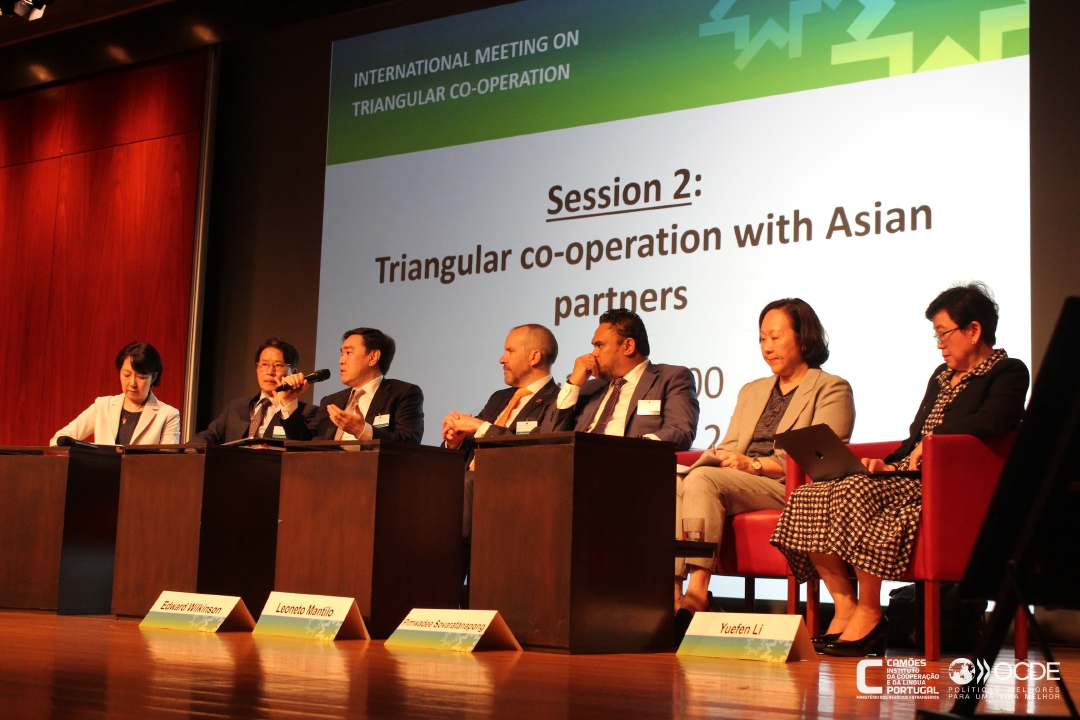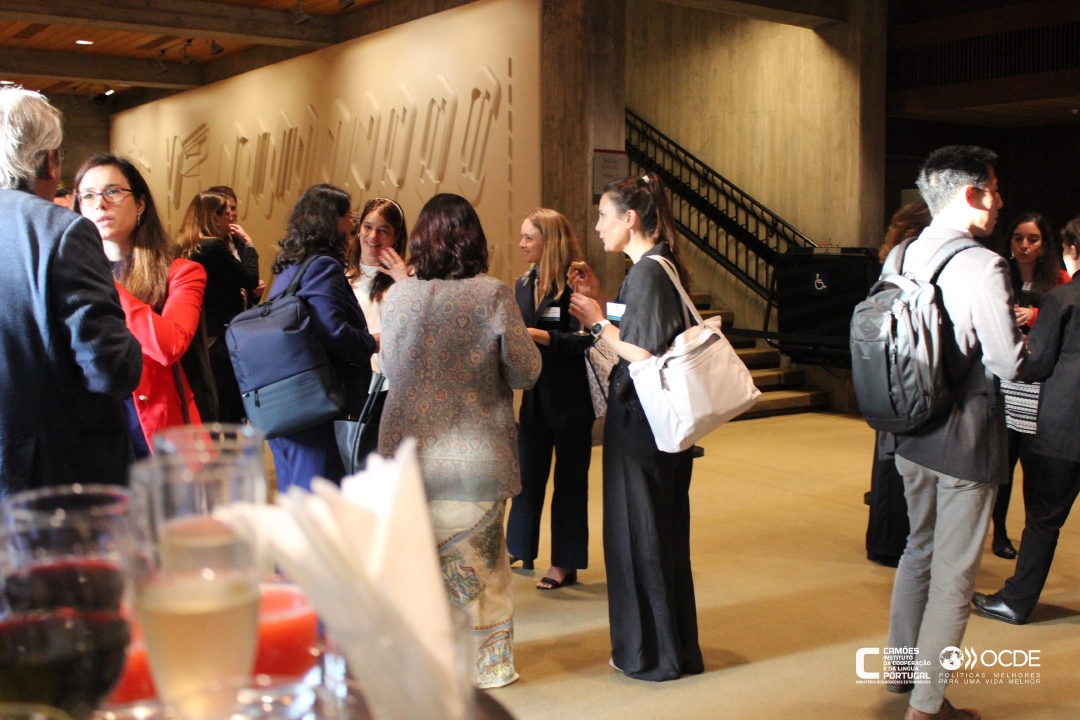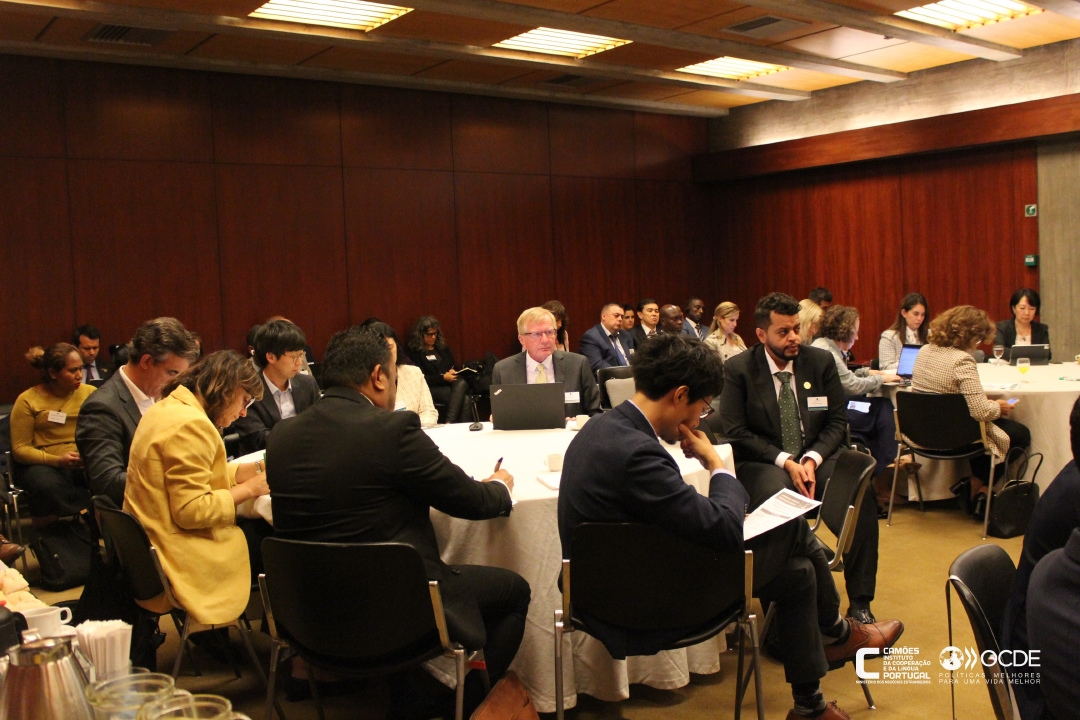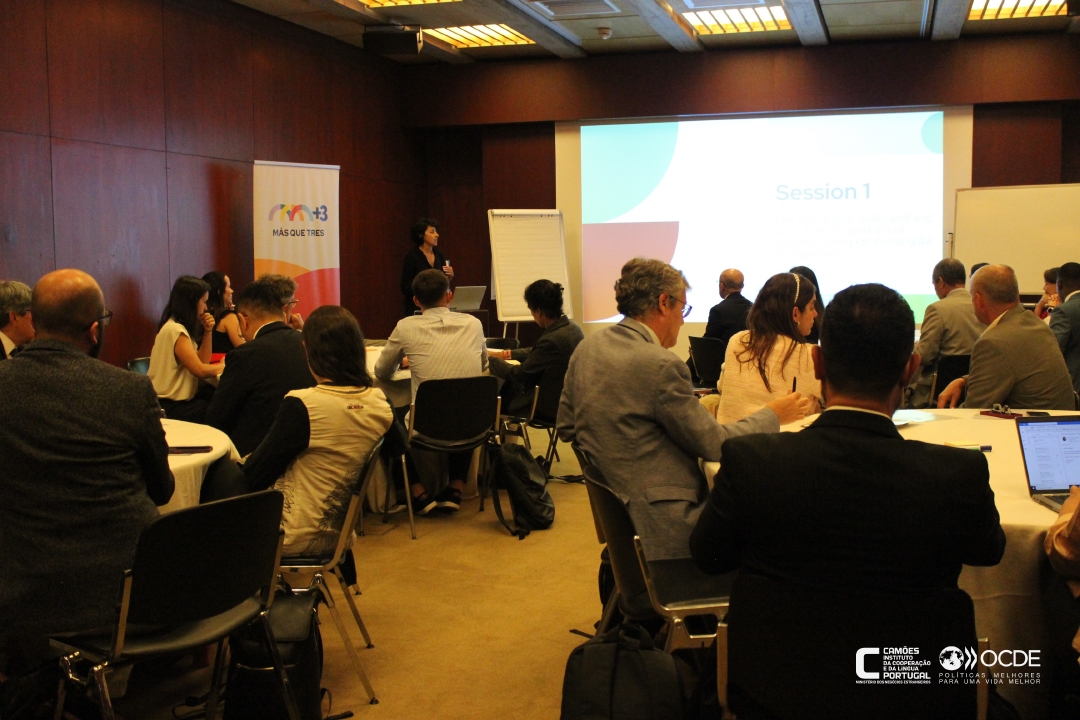On October 7th and 8th, the 8th Edition of the International Meeting on Triangular Cooperation took place in Lisbon, Portugal.
Organized by Camões – Institute for Cooperation and the Portuguese Language, I.P. (Camões, I.P.) and the Organisation for Economic Co-operation and Development (OECD), the meeting had as its central theme “Linking Global Processes to Generate Local Impact.”
Ibero-America had a strong presence among the 180 participants from over 50 countries, who worked over two days in three simultaneous tracks to derive lessons, learnings, and possibilities on: i) the future strategy of Triangular Cooperation (TrC); ii) strengthening systems and processes for engagement in triangular alliances; and iii) fostering horizontal, locally led alliances in triangular cooperation projects.
Ibero-America was recognized globally for being at the forefront in both the practice and the measurement, discussion, and positioning of TrC. An example of this was the parallel technical meeting organized by the presidency of Brazil at the G20 to discuss the knowledge exchange mechanism launched at the G20 Ministerial Development Meeting.
Furthermore, as a result of the implementation of MÁS QUE TRES in Tela, Honduras, the PIFCSS was invited by Portugal and the OECD to facilitate the track dedicated to strengthening national systems and processes with Co-laboratory elements. Over three sessions, participants in the systems track worked collaboratively to identify challenges shared by TrC partners globally, extract solutions and options that have worked to overcome these challenges, and find common ground and potential connections to help overcome them, leveraging the diversity of practices gathered.
In the spirit of MÁS QUE TRES, Ibero-American challenges for the deployment of TrC identified within the PIFCSS framework resonated with peers from around the world, who recognized the value of frank conversation, active listening, and the Co-laboratory methodology. Among the shared challenges were:
- Identifying correspondences between needs and capacities prior to proposing TrC projects.
- Predictability in terms of knowing what mechanisms of support for cross-border cooperation projects exist.
- How to improve internal coordination, whether between departments of the same organization or ministries within the same government.
- How to deal with different bureaucracies, formats, and requirements between partners, which often reflect power imbalances among TrC actors.
- How to improve institutional capacity to record information, use that data for measurements, and also tell compelling stories.
- How to keep staff up to date on TrC, as well as higher levels.
- How to overcome differences in language and paradigm among actors to engage the private sector, civil society, philanthropy, among others, in triangular partnerships.
Parallelly, during the two days, the PIFCSS promoted collaboration among all conference participants to conduct an agile mapping of mechanisms, funds, windows, and programs that support TrC initiatives, as well as assets and knowledge resources on TrC, contributing to the exercise started by the Program in Tela, Honduras. The mapping achieved was presented at the final session of the Conference as an example and will be shared with all participants for its continuous enrichment and contribution to the shared challenges of strengthening TrC globally.
